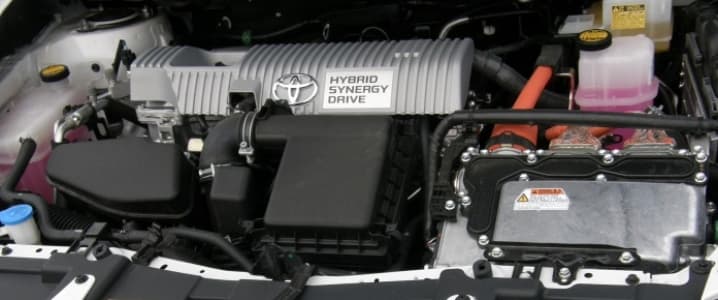Toyota Motor Corp. is making a serious commitment to bringing electrified vehicles into its fleet. The move goes against the widely held perception that the Japanese automaker was taking a very different path than other global automakers striving to become “Tesla-competitive.”
Toyota announced on December 18 that it will be electrifying all its vehicles by 2025, and hitting a target of selling 5.5 million electrified vehicles by 2030. That will include 1 million zero emission vehicles - battery electric vehicles, and fuel cell vehicles similar to the Toyota Mirai.
By 2025, the automaker will have every Toyota and Lexus model available as a dedicated electrified vehicle, or it will have an electrified option available. Electrified options include all-electric, plug-in hybrid, fuel cell, or hybrid.
More than 10 battery electric vehicle models will be available worldwide by the early 2020s. Through the end of the 2020 decade, the plug-in hybrid lineup will be expanded.
Passenger and commercial fuel cell electric vehicles will be expanded during that time period. Hybrids will receive further development through the Toyota Hybrid System II.
It all ties into the Toyota Environmental Challenge 2025 addressing global warming, air pollution, and limited natural resources and energy supply.
A few auto analysts and media pundits have taken Toyota to task for being too preoccupied with hybrids and hydrogen fuel cell vehicles - while avoiding public interest and government mandates leaning toward greater adoption of electric vehicles.
Related: The Beginning Of The End For Norwegian Oil
There was also a rift between Toyota and Tesla over the Japanese automaker leaving behind its stake in the electric carmaker, which came to completion in June 2017. The Japanese automaker had been an early investor in Tesla. The two companies had worked together to place Tesla’s electric drivetrain into an all-electric Toyota RAV4 sport utility vehicle.
The electric RAV4 had only seen a small volume of sales before Toyota decided to end production in 2014. Toyota also sold off a large part of its Tesla stock at that time.
That move reinforced the argument that Toyota had only been making superficial efforts to appear compliant with increasing government pressure to face climate change and air pollution. Electric vehicles had become the leading alternative power source in recent years gaining support by regulators.
It was enhanced by German automakers committing to rolling out large volumes of EVs by 2025 - mainly to become more Tesla-competitive. Related: Is Premium Gasoline A Waste Of Money?
Toyota actually has its own unique place in the auto industry by covering all the bases and seeing which technology will take off - battery electric, plug-in hybrid, hydrogen fuel cell, or hybrids like the Prius.
The automaker had been taking steps toward electrifying its product lineup. In late 2016, president and CEO Akio Toyoda announced he will lead a group of executives overseeing upcoming all-electric vehicle launches. That led to the company revealing this year it’s been exploring long-range solid-state batteries to make its EVs more competitive and appealing to consumers.
Toyota appears to be taking more of the classic Japanese business philosophy of “kaizen,” which translates into developing continuous improvement in company products and technologies. Toyota for years had been the top seller of new vehicles in the world, and would like to take on a realistic, cost-effective strategy to become truly Tesla-competitive - and much more profitable than Tesla.
By Jon LeSage for Oilprice.com
More Top Reads From Oilprice.com:
- U.S. Asks China To Implement New Oil Sanctions On North Korea
- The Next Big Hurdle For Keystone XL
- Wall Street Returns To U.S. Shale With A Bang


















